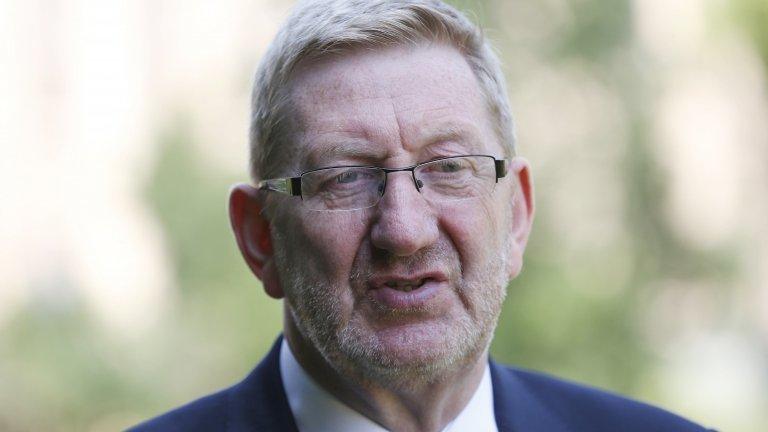Union boss Len McCluskey hits back at Jim Murphy
- Published
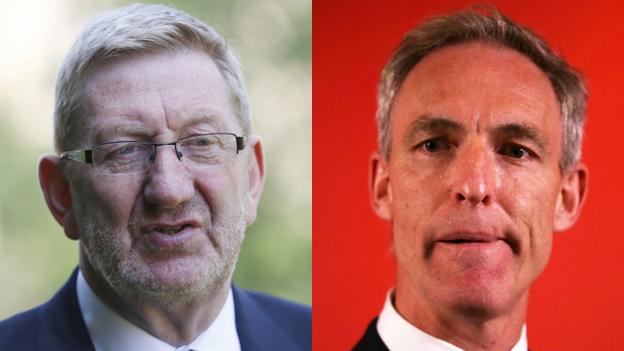
Mr McCluskey had been a vocal critic of Mr Murphy's appointment as Scottish Labour leader
The head of the Unite union has hit back at claims by outgoing Scottish Labour leader Jim Murphy that he was the "kiss of death" for the party.
Len McCluskey told the BBC that Mr Murphy had used him as a "bogeyman".
And he said some Unite members in Scotland wanted the union to end its affiliation with Labour.
Meanwhile, a UK Labour leadership candidate has said there was a case for the Scottish party to run its affairs entirely separately from London.
Some of those who had called for Mr Murphy to quit in the wake of Labour's crushing defeat at the hands of the SNP also want to see the Scottish party given more autonomy from central control.
Andy Burnham, who is seen as being the frontrunner in the UK contest, said he would look at the issue if he wins the contest to succeed Ed Miliband.
More autonomy
Scottish Labour's only remaining MP, Ian Murray, has distanced himself from suggestions he could stand for the Scottish leadership by saying he believed the job should go to an MSP.
Mr Murray said the best person for the role would be deputy leader Kezia Dugdale, who will become acting leader when Mr Murphy stands down.
He told the BBC's Sunday Politics Scotland programme that Ms Dugdale could inspire both the party and the country, but said Scottish Labour's problems were far deeper than just Mr Murphy or Mr McCluskey.
Neil Findlay, an MSP who stood against Mr Murphy for the leadership last year, has also said he will not stand again.
He was part of Mr Murphy's shadow cabinet but resigned last week, citing the party's "disaster" in the general election.
Mr Murphy announced on Saturday that he would resign next month despite narrowly surviving a vote of no confidence at a meeting of the party's national executive in Glasgow.
He has said he will submit proposals for reforming Scottish Labour before he steps down.
Jim Murphy says he will stand down as leader in June
Mr Murphy also delivered a strongly-worded attack on the "destructive behaviour" of Mr McCluskey, who opposed his appointment in December and had been a vocal critic of his leadership since.
Speaking on BBC Radio 5 Live's Pienaar's Politics, Mr McCluskey said he understood Mr Murphy was "hurting" but claimed his "arrogance" was part of why Labour had failed in Scotland.
He said: "He represented the ideology that has completely alienated (voters) ... not just in the election, not just in the (independence) referendum, but for years.
"Since 2008 the SNP have been gaining ground and Scottish Labour have displayed an arrogance that unfortunately led us to where we were at the general election.
"The majority of my members in Scotland voted SNP. What I predicted would happen with Jim Murphy unfortunately came to pass."

Analysis: Glenn Campbell, BBC Scotland Political Correspondent
McConnell. Alexander. Gray. Lamont. Murphy.
The Scottish Labour Party has had five leaders since its Holyrood election defeat in 2007. It will soon start the search for its sixth leader in eight years.
Jim Murphy's tenure has been the shortest of them all. By the time he stands down next month, he will only have been in the job for six months.
That's not enough time for anyone to turn around a struggling political party.
Few would have brought as much energy to the task as Mr Murphy.
However, the scale of Labour's defeat is so monumental that it would have been difficult for him to remain as leader.

Mr McCluskey issued a warning that Unite's affiliation to Labour could be reconsidered unless it showed it was the "voice of ordinary working people, that they are the voice of organised labour".
"It is up to them. If they don't, if they kind of inject more disillusionment in the party then the pressure will grow from our members to rethink. It is certainly already growing in Scotland.
"We have a rules conference in my union in July and there's already a number of resolutions from Scotland seeking to release them from the rule that kind of limits us just to the Labour Party."
The Unite boss denied that Mr Burnham was his favoured candidate for the UK leadership, and appeared to go further than Mr Cameron on the EU issue by suggesting free movement of labour had to be questioned.
Saying the Left needed to "challenge" UKIP, he said: "That means in my opinion we need to seriously debate the free movement of labour."
- Published13 May 2015
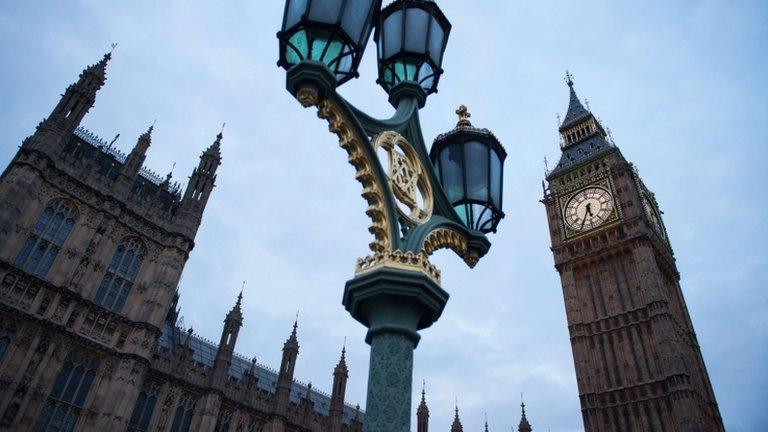
- Published16 May 2015
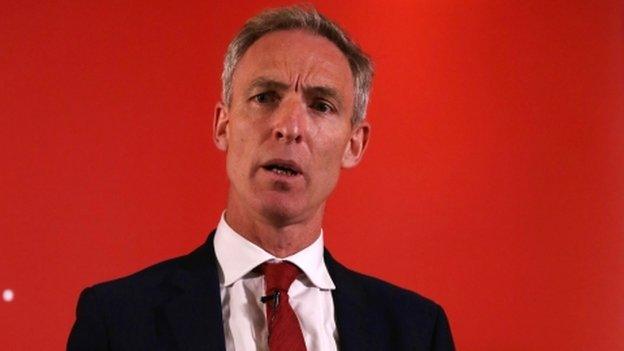
- Published16 May 2015
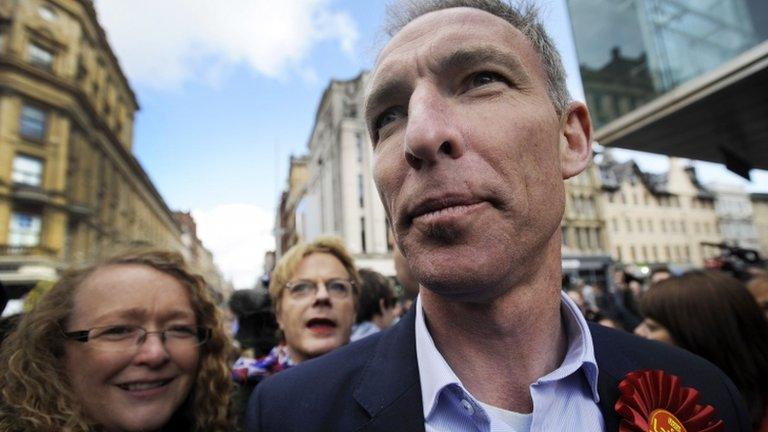
- Published17 May 2015
